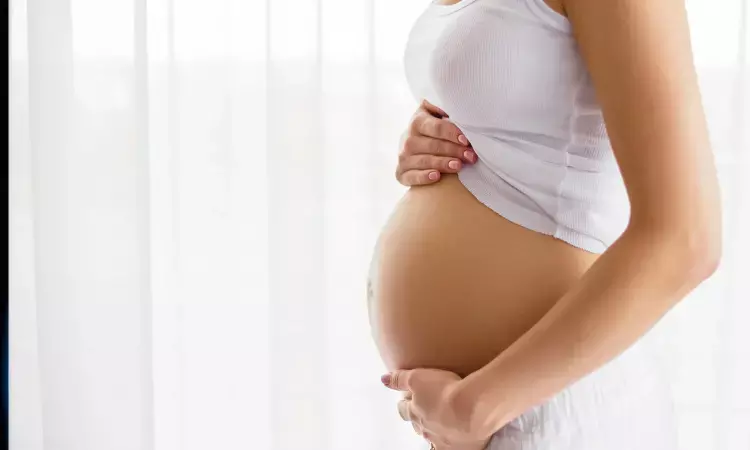- Home
- Medical news & Guidelines
- Anesthesiology
- Cardiology and CTVS
- Critical Care
- Dentistry
- Dermatology
- Diabetes and Endocrinology
- ENT
- Gastroenterology
- Medicine
- Nephrology
- Neurology
- Obstretics-Gynaecology
- Oncology
- Ophthalmology
- Orthopaedics
- Pediatrics-Neonatology
- Psychiatry
- Pulmonology
- Radiology
- Surgery
- Urology
- Laboratory Medicine
- Diet
- Nursing
- Paramedical
- Physiotherapy
- Health news
- Fact Check
- Bone Health Fact Check
- Brain Health Fact Check
- Cancer Related Fact Check
- Child Care Fact Check
- Dental and oral health fact check
- Diabetes and metabolic health fact check
- Diet and Nutrition Fact Check
- Eye and ENT Care Fact Check
- Fitness fact check
- Gut health fact check
- Heart health fact check
- Kidney health fact check
- Medical education fact check
- Men's health fact check
- Respiratory fact check
- Skin and hair care fact check
- Vaccine and Immunization fact check
- Women's health fact check
- AYUSH
- State News
- Andaman and Nicobar Islands
- Andhra Pradesh
- Arunachal Pradesh
- Assam
- Bihar
- Chandigarh
- Chattisgarh
- Dadra and Nagar Haveli
- Daman and Diu
- Delhi
- Goa
- Gujarat
- Haryana
- Himachal Pradesh
- Jammu & Kashmir
- Jharkhand
- Karnataka
- Kerala
- Ladakh
- Lakshadweep
- Madhya Pradesh
- Maharashtra
- Manipur
- Meghalaya
- Mizoram
- Nagaland
- Odisha
- Puducherry
- Punjab
- Rajasthan
- Sikkim
- Tamil Nadu
- Telangana
- Tripura
- Uttar Pradesh
- Uttrakhand
- West Bengal
- Medical Education
- Industry
Depression during or after pregnancy in females increases depression risk in offsprings later

Children born to mothers who are depressed during and after pregnancy are more likely to develop depressive symptoms themselves by the age of 24, according to new research led by the University of Bristol.
By the age of 24, young people born to mothers with antenatal and postnatal depression, had depression scores that were almost three points higher than offspring of mothers with no depression. The study also considered the impact of the father's depression, although the sample was very small.
Published today [24 September] in the British Journal of Psychiatry, the study looked at survey information for 5,029 individuals during a 14-year period from the ages of 10 to 24 to examine how risks of depression occur across childhood and adolescence.
Researchers also found that offspring of mothers with a history of postnatal depression had an increase in depressive symptoms over time, while those with mothers with a history of antenatal depression had higher overall levels of depression throughout. This suggests the importance of antenatal and postnatal depression support and interventions.
Thanks to data from world-renowned health study Children of the 90s (also known as the Avon Longitudinal Study of Parents and Children) researchers could explore the patterns of offspring depressive symptoms based on the various timings of maternal depression see if there were any characteristics or differences in when and for what duration the offspring of depressed mothers were depressed themselves.
Dr Rebecca Pearson, senior author and senior lecturer in psychiatric epidemiology at the University of Bristol / Professor of Psychology at Manchester Metropolitan University, said: "By tracking trajectories of repeated measures of mood in offspring of depressed mothers, from childhood through to adulthood, we were able to provide further insight into how the well-known intergenerational risk of depressed mood presents over time."
Dr Priya Rajyaguru, first author explained: "This study shows that the children of parents with both antenatal and postnatal depression are at greatest risk of depression themselves, and this risk appears to persist throughout adolescence into early adulthood. We also found some differences according to the timing of maternal depression in particular".
The data was collected from a cohort that is predominately white and middle class. Further work is needed to look at more populations and contexts such as parenting styles, peer relations and other factors across different cultures.
The research was supported by expertise from Manchester Metropolitan University.
"The study also raises important questions about the visibility of paternal mental health, although the sample of fathers was small. As their mental health is not routinely screened but still affects the child's future mental health, we need more research to understand what better support for fathers might look like."
https://www.cambridge.org/core/journals/bjpsych-open/article/maternal-and-paternal-depression-and-child-mental-health-trajectories-evidence-from-the-avon-longitudinal-study-of-parents-and-children/CD633F11DD64BC15BB2296CFD9A679CE
Hina Zahid Joined Medical Dialogue in 2017 with a passion to work as a Reporter. She coordinates with various national and international journals and association and covers all the stories related to Medical guidelines, Medical Journals, rare medical surgeries as well as all the updates in the medical field. Email: editorial@medicaldialogues.in. Contact no. 011-43720751
Dr Kamal Kant Kohli-MBBS, DTCD- a chest specialist with more than 30 years of practice and a flair for writing clinical articles, Dr Kamal Kant Kohli joined Medical Dialogues as a Chief Editor of Medical News. Besides writing articles, as an editor, he proofreads and verifies all the medical content published on Medical Dialogues including those coming from journals, studies,medical conferences,guidelines etc. Email: drkohli@medicaldialogues.in. Contact no. 011-43720751


